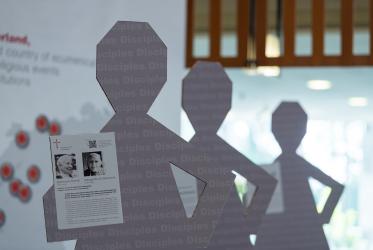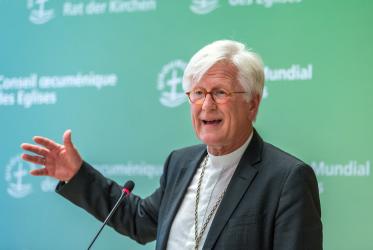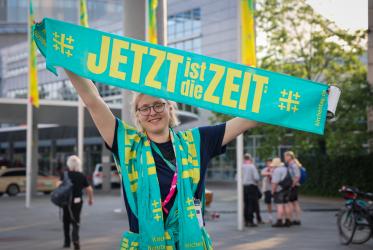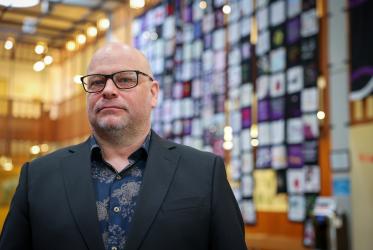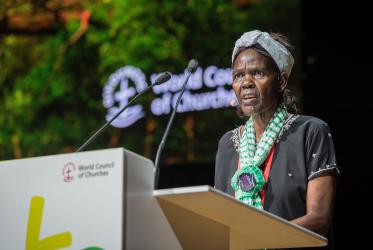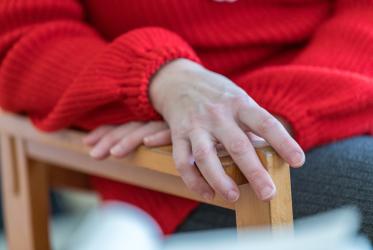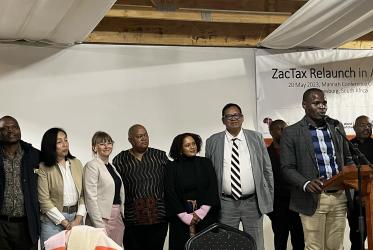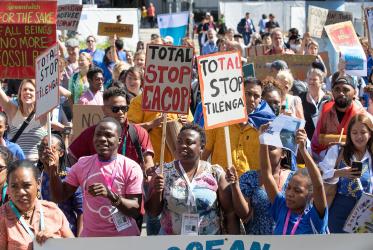Displaying 101 - 120 of 1547
What a woman!
23 June 2023
German Protestant Kirchentag opens in Nuremberg
09 June 2023
Global Summit on Gender Equality in Nationality Laws
13 June 2023
Peace Pilgrim Agnes Abuom dies at 73
01 June 2023
ZacTax Campaign relaunched in Africa
23 May 2023
